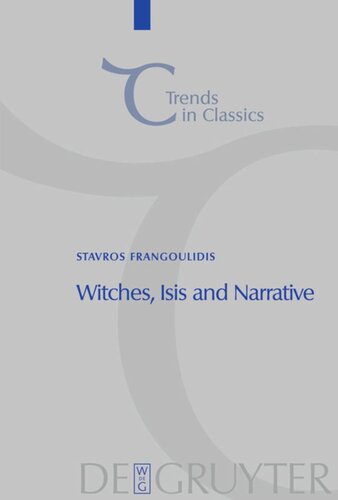

Most ebook files are in PDF format, so you can easily read them using various software such as Foxit Reader or directly on the Google Chrome browser.
Some ebook files are released by publishers in other formats such as .awz, .mobi, .epub, .fb2, etc. You may need to install specific software to read these formats on mobile/PC, such as Calibre.
Please read the tutorial at this link: https://ebookbell.com/faq
We offer FREE conversion to the popular formats you request; however, this may take some time. Therefore, right after payment, please email us, and we will try to provide the service as quickly as possible.
For some exceptional file formats or broken links (if any), please refrain from opening any disputes. Instead, email us first, and we will try to assist within a maximum of 6 hours.
EbookBell Team

5.0
80 reviewsThis is the first in-depth study of Apuleius' Metamorphoses to look at the different attitudes characters adopt towards magic as a key to deciphering the complex dynamics of the entire work. The variety of responses to magic is unveiled in the narrative as the protagonist Lucius encounters an assortment of characters, either in embedded tales or in the main plot. A contextualized approach illuminates Lucius' relatively good fortune when compared to other characters in the novel ‒ this results from his involvement with the magic of a sorcerer's apprentice, rather than that of a real witch, and signals the possibility of eventual salvation. A careful investigation of Lucius' attitude towards Isis in book 11 and his relationship with the witch-slave girl Photis earlier on suggests that the novel's final book may be read as a second "Metamorphoses", consciously rewritten from a positive perspective. Last but not least, the book also breaks new ground by examining the narrative structure of the Metamorphoses against the background of the typical plotline found in the ideal romance. The comparison shows how Apuleius both follows and alters this plot, exploiting the genre to his own specific ends, in keeping with his central theme of metamorphosis.